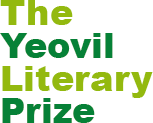In these unprecedented times we believe that many more people have found the time to hone their skills of writing. A major benefit of this activity is that we are sure that they are improving their own mental health. We have enjoyed providing the opportunity for many more writers to enter our Literary Competitions. The judging team have appreciated the time, energy, and talent our contributors have applied and we applaud them for their efforts and indeed their skills.
Last year, we saw such an extraordinarily wide variety of entries from all over the world. The readers and the judges can only imagine the hard work of the huge numbers of contributors sitting with their pens and paper in hand, or word processors and computers before them. We can picture them, all letting their imaginations explore so many possibilities before exercising, what some consider, the most rewarding but demanding of skills, editing.
The Novel entries began trickling in from the early months of the year before the metaphorical post-box simply exploded towards the end of May. Many a midnight lamp was burned so that the different readers could sensibly assess the extraordinary range of genres, plots and writing styles. Every novel was read by at least one of the readers. Between them they collectively amassed a quality longlist of fifty entries, all of which had their champions and all of which were read by every other reader before decision day. Much debate ensued in narrowing down the entries to a shortlist of titles to present to the judge, Victoria Howard. Victoria commented: “I loved judging the prize. It was an honour to be involved.
She said of After Jaspar, written by Emma Lee Potter: An exceedingly well-written entry with a good immediate opening, giving the reader a sense of time, place, and character. There’s depth to the characterisation which made me eager to continue reading. I enjoyed the author’s description of Vitty’s night shift in the deserted newsroom. It set the tone for her subsequent change of circumstances and the discovery that Jasper had died. The descriptions of the Dorset coast are wonderful. I look forward to reading the finished book.
A similar scenario applied to the Short Story Category. Our judge Steven Kay said of the winning story Late Summer Blossom by Liz Meyer: What a great title! It fits the story perfectly. The first sentence carries you straight into the setting and places you at the side of the character. The reader immediately warms to her and wills her on. The secondary characters (Lily and Mrs Biggs) are also made to feel real with a few deft strokes of the pen. The goal at the end is almost lost and it has a very satisfying ending. The writing is lovely – with just enough words to leave the reader to fill in the rest. Very strong images are conjured up of little splashes, oases, of colour (and scent) against a drab (and musty-smelling) backdrop: the flower shop, the flowers in the back garden and on the sideboard (See – you didn’t even mention a sideboard and yet there it is!) Thanks for writing this.
Jessica Mookherjee judged the 2023 Poetry Category.
Jessica commented: "The Wind River Reservation & St Michael's Mission"
I chose this as the winner because there is a great sense of place evoked by the poet. On top of that the poet keeps an effective rhythm that holds through the poem. The poem captures a quiet event and a mystery. The poem does not over describe and lets the reader wonder about the reverend, the reservation and the place they are driving to and the meaning of the church they have stumbled upon.
Children’s and Young Adult Novel
Our judge, Hannah Gold, commented: "The Aliens Are Coming!"
Not only did this feel original and quirky in concept, I loved the voice and tone of the writing and it felt like something middle-grade readers would really enjoy. It also made me laugh out loud which is always a good thing!
Writing Without Restrictions
Our judge, Sally Bayley, commented: "When the Rain Stops"
The structure of the story is elegant and has a clear emotional logic. The author has conjured a convincing and moving world of loneliness and isolation within one particular stringent routine during the Covid era (that of Charles Linzell). The story then opens up to wider considerations about the meaning of daily life and the way we structure our routines accordingly to make meaning when meaning is hard to find: when life is closed down. On the level of the sentence the story is also elegant and whilst there are a few details that don't quite ring true the movement between the scenes reads like a miniature play and is successful in this regard. As a short narrative drama. Stylistically it was the one most sophisticated of the pieces I read and the style and content resonate well together. Finally, a definite sense of voice holds the story together, voice being perhaps the most crucial element in any creative writing endeavour.
Each year £100 is awarded to the Western Gazette, Best Local Writer, the highest placed long listed entry who lives in the distribution area of the Western Gazette. The winning entry this year was awarded to Jenny Hunt and Liz Meyer
Our thanks and congratulations to everyone who entered last year, and we welcome you and all writers in the United Kingdom, Europe, and the rest of the world with your many and varied voices to join us again this year.
Our 2024 competition opens on January 1st with a closing date of May 31st

